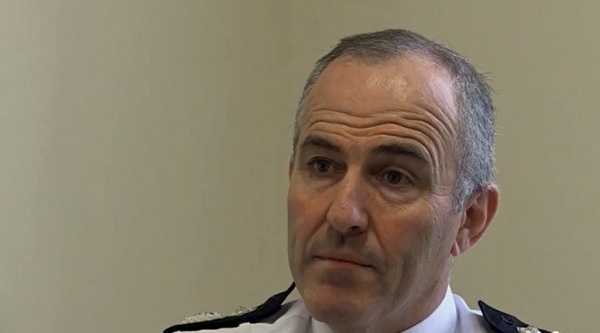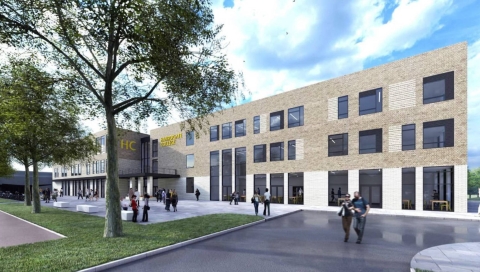An Interim HMIC report on crime data integrity has identified serious concerns about the crime-recording process.
An interim report on crime data integrity by HM Inspectorate of Constabulary (HMIC) has identified serious concerns about the crime-recording process. HMIC has found weak or absent management and supervision of crime-recording, significant under-recording of crime, serious sexual offences not being recorded, and some offenders having been issued with out-of-court disposals when their offending history could not justify it.
HMIC’s inspection of crime data integrity intends to identify to what extent police-recorded crime information can be trusted. The interim report, published today, is based on inspections carried out in 13 police forces, and sets out the emerging themes so far. This inspection – which looks at how the Home Office Counting Rules (HOCR) and National Crime Recording Standard (NCRS) are applied – has identified serious concerns in the emerging picture. HMIC has found:
- Weak or absent management and supervision of crime-recording.
- Significant under-recording of crime.
- Serious sexual offences not being recorded – HMIC identified 14 rapes not recorded (these are not within North Yorkshire)
- A lack of victim focus by the police when making crime-recording decisions.
- Some offenders having been issued with out-of-court disposals when their offending history could not justify it, and in some cases they should have been prosecuted.
HMIC highlights that if the findings for the first set of forces are representative across all forces, and all crime types, this implies that 20 percent of crimes may be going unrecorded. Some forces have of course performed better than others.
The report sets out a number of reasons for these concerns, such as poor knowledge of the recording rules, inadequate or absent training in how to use them, poor supervision or management of police officers and the pressure of workload – where police officers have been managed in such a way as to overload them with cases.
The inspection has also identified strengths which are common to all of the forces visited so far:
- When crime reports are recorded, the classification of the offence which is recorded is correct on almost every occasion.
- By listening to calls made to the police, HMIC is finding that victims of crime receive a professional service with call-takers being polite, helpful and showing empathy to the needs of the victim during initial contact with the police.
As well as the emerging themes from the first 13 forces, today’s interim report sets out HMIC’s full methodology for this inspection, which has been developed in consultation with other organisations.
This is an interim report, and covers 13 of the 43 Home Office police forces. The report emphasises that the only statistically significant statistic is the national one, and that will be available in the final report in October 2014. This report contains emerging themes, not final conclusions.
The forces inspected so far are:
- Cheshire Constabulary
- City of London Police
- Devon and Cornwall Police
- Essex Police
- Gloucestershire Constabulary
- Greater Manchester Police
- Gwent Police
- Hertfordshire Constabulary
- Metropolitan Police Service
- Norfolk Constabulary
- North Wales Police
- North Yorkshire Police
- South Yorkshire Police
HM Chief Inspector of Constabulary, Tom Winsor, said: The accuracy and integrity of police-recorded crime data are vital to public trust in the police. The HOCR and NCRS are not optional – every police officer should be able to understand and properly apply them, and every police force should adhere to them.
The consequences of under-recording of crime are serious, and may mean victims and the community are failed because crimes are not investigated, the levels of crime will be wrongly under-stated, and police chiefs will lack the information they need to make sound decisions on the deployment of their resources.
Although this is an interim report, and we have identified common strengths, we are seriously concerned at the picture which is emerging – particularly about the significant under-recording of crime, and serious sexual offences not being recorded.
This is an inspection of the integrity of police-recorded crime data – not an inspection or inquiry into the integrity of the police. HMIC will inspect the remaining forces in England and Wales to provide a full picture of crime data integrity, with the final report published in October 2014.
Deputy Chief Constable Tim Madgwick said: What is utmost for North Yorkshire Police is to put victims and their needs first. All reported incidents of crime are recorded on the force systems and as such it is important that the public are aware that any safeguarding, welfare and support needs are identified and managed as part of any investigation.
We continue to invest in improving services for victims of crime, for example the excellent work undertaken by the Sexual Offences Reporting Centre (SARC) and the work to introduce THRIVE (Threat, Harm, Risk, Investigation, Vulnerability and Engagement) within our Force Control Room to respond to the specific needs of the individual and not necessarily crime categories or types.
Both North Yorkshire Police and HMIC recognise that crime recording is best dealt with through a central point. The Force Control Room is the central point of contact and in common with the national report, HMIC recognised the skills, care and knowledge of NYP staff operating within this key area of business.
We are awaiting the detailed report that is specific to North Yorkshire Police. However, we have already acted upon the initial feedback to ensure we continue to improve on the services we provide. It is important to note that victims of crime have independently demonstrated, via The British Crime Survey, that North Yorkshire Police provide one of the highest standards of service in the country.
As with any guidance issued, there is always an element of professional judgement and interpretation required in reaching a decision. Over the last couple of years there have been some very encouraging HMIC reports on crime recording in North Yorkshire.
The most recent report in 2014 has identified issues that have already been addressed and are subject to a National Crime Recording Standards Quality and Improvement Board chaired by the Head of Crime, Detective Chief Superintendent Simon Mason, which meets regularly to continually review current procedures and identify ways in which to improve standards.
North Yorkshire Police operates a robust and ethical system of crime recording, which is subject to a high level of scrutiny to ensure it meets the standards set out by the Home Office.
Internally, this consists of regular audits and dip-sampling of cases which are undertaken independently of operational policing activity by the Force Crime and Incident Registrar.
This report and work undertaken by North Yorkshire Police in 2013, has lead to scrutiny and review by the Chief Constable, the Police and Crime Commissioner and the Joint Independent Audit Committee. We will build the findings into our existing change programme by investing in technology, further training with staff and improving our administrative processes in our desire to improve service provision to victims.
Julia Mulligan, North Yorkshire’s Police and Crime Commissioner, said: The interim HMIC report gives me cause for concern. Ensuring we record crime properly is extremely important, not only for the general public, but particularly for victims.
Behind every statistic in this report is an individual, a victim, and I have committed to supporting those people however I can. I am confident the same desire is at the heart of North Yorkshire Police, but there are clearly some questions which need to be answered.
North Yorkshire Police are already taking steps to deal with some of the issues, as am I. For example, we are just about to launch a new, independent Out of Court Disposal Panel, to be chaired be a member of the public.
I will be speaking to the Chief Constable urgently on this report, ensuring we are undertaking the necessary steps to resolve any under-recording of crime in North Yorkshire.






